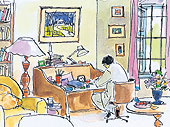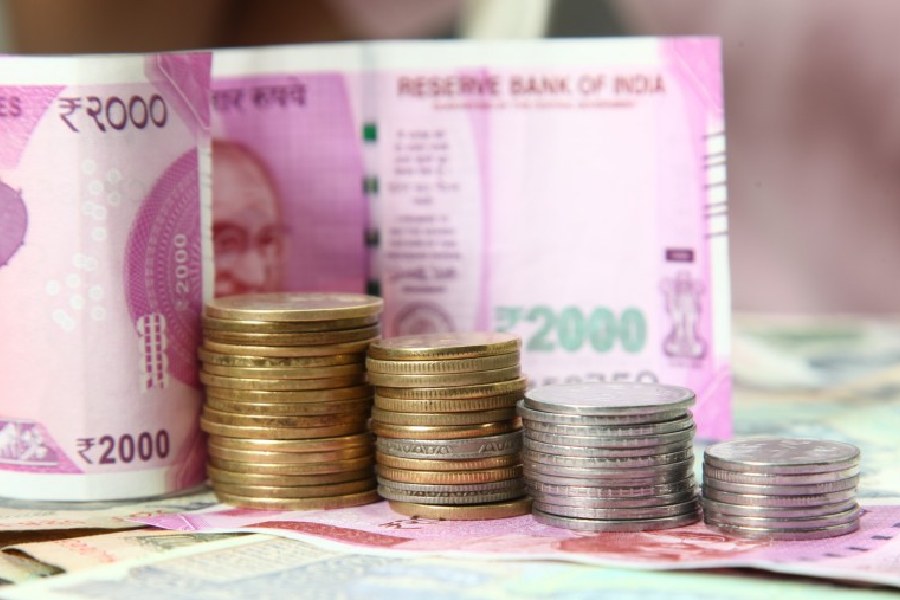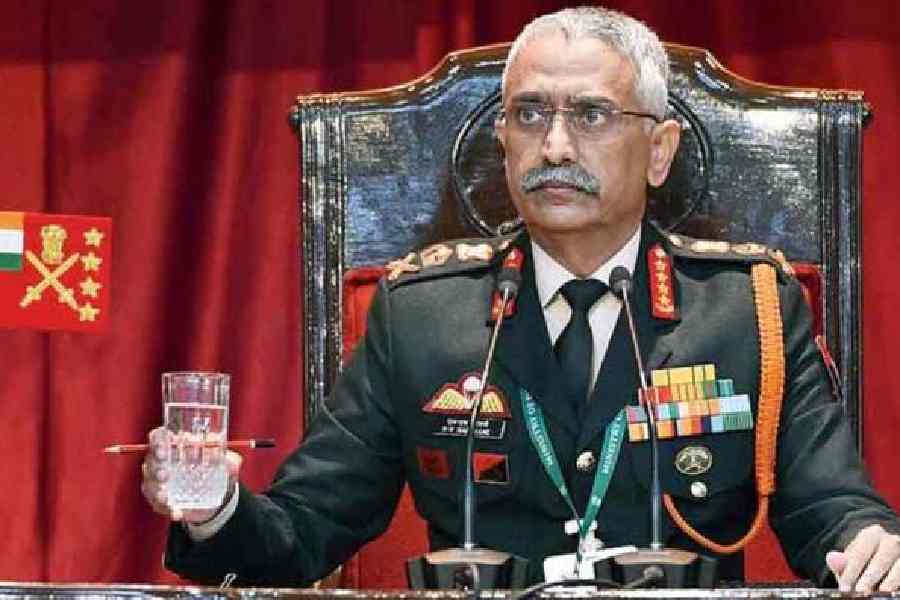 |
I can?t remember when I started toying with the idea of writing. A mild desire lurked in the shadows without knowing how to come out into the open. This probably happened when I joined office and found the work less then inspiring.
In the early Seventies, my wife and I chanced upon the poet, Pritish Nandy, who was then working at Guest Keen Williams. At that time he used to publish a magazine, Dialogue India, which contained translations of poems from different regional languages and some original poems in English as well.
In those days Leftist poetry was all the rage and Pritish suggested that I should translate as many poems as I could from Sukanta Bhattacharya?s Chharpatra. Needless to say he was an avid Communist poet who died too young.
I approached the job with a good deal of trepidation but the process of translation proved less formidable that I thought it would be. That was the first time I wielded a pen and succeeded in overcoming my diffidence. Once Pritish set out for greener pastures elsewhere Dialogue India folded up. This was my first encounter with poems with a social message.
It?s quite extraordinary that I should meet the uncompromising and scrupulously honest journalist, Samar Sen, shortly after this. His days as a poet were over but he was running the hard left magazine Frontier with a good deal of success. He told me he was looking for someone to review Bengali plays which had reached their peak then and were storming the public halls. The sheer abundance of such plays was a unique phenomenon. He wanted me as a critic for his magazine and I took up this assignment with all the enthusiasm I could summon up. My wife and I were at the Academy of Fine Arts every week and sometimes it used to be Muktangan at South Calcutta where Souvanik staged their plays regularly.
I was exposed to a much larger world than I had ever expected to be in. Imbued with some sort of passion I wrote my reviews with a flourish. Names like Dwijen Bandopadhyay, Kumar Roy, Bibhash Chakravarty, Utpal Dutt, Asoke Mukherjee, Nilkantha Sengupta, Manoj Mitra and Jochhan Dastidar meant something to me at last. The burning issues of the day found their expression on the stage and raised the consciousness of an audience which was becoming a victim of a pervasive cynicism.
My amateurish efforts were appreciated by a number of directors and I learnt a lot about the world of drama as I went along. Between inflammatory political and satirical plays my world was in a state of flux. I was educating myself at every step. In such a situation it was difficult to be politically neutral. There was this fascination with the political workings underlying events.
When the Emergency was declared in mid 1975, the Frontier suddenly became a subversive magazine and censors were using their scissors liberally. As they did their job ineptly, they became objects of ridicule. They encroached on my reviews as well.
One thing led to another. A lively young man with literary pretensions, Shankar Dasgupta, came into our lives in the mid Seventies. It was his ardent desire to see me burgeon as a Bengali poet.
The suggestion seemed outrageous at first but since I had a fair knowledge of my own mother tongue and used to read Tagore, Jibanananda, Sudhin Dutta, Subhash Mukhopadhyay, Sunil Gangopadhyay and Shakti Chattopadhyay amongst others, I felt I could turn to words and images to express my deeper emotions which were simply waiting to be released. I wrote about a dozen or more poems which Shankar published in a small paperback edition with the attractive title Momer mato pore Kolkata. What I saw and felt deeply, gained a recognisable shape.
When my style had improved and the urge to write had acquired a sense of urgency, my patron and benefactor, Kiron Sankar Sengupta, encouraged me to contribute poems for his well-established magazine Sahitya Chinta. He was a very well- known poet himself and had begun his literary career from the time he was in Dhaka in the Twenties and Thirties. With him on my side, I found a proper footing but I never wrote prolifically to become part of a magic circle. Once Kiron babu died, Sahitya Chinta dropped out of circulation and my poetic effervescence slowly ebbed away. The honeymoon with poetry was over once and for all.
During this interregnum, another friend working for Amrita Bazar Patrika requested me to contribute articles for its Sunday supplement, The Interface. I turned to pure prose, using my pen like a sword and feeling like Don Quixote on Rosinante. Memories from yesteryear came flooding in and I churned out one article after another, delving into the past like as excavator. If it wasn?t for his warm words of encouragement and belief in my ability to write, I wouldn?t have made the progress I did.
When Amrita Bazar started wavering and ultimately fizzled out, I found myself off duty like a liftman with a broken down lift? At this juncture, my friend, Nandita Das, the actress, brought a young man from The Telegraph, one afternoon to see us. Nandita told him that my letters to her were full of sparkle and exciting ideas and she wanted him to give me a chance to write for his paper.
That is how my reminiscences began again for a wider audience. Most of the interesting aspects of my life were unfolded, dusted and sired in these articles. My memory served me well and the dead rose from their graves, their faces wreathed in smiles. I had no idea that dredging up the past could arouse the dormant enthusiasm of so many readers belonging to different ages and persuasions.
It was an exhilarating experience to carry people with me in a fast-moving boat along a swiftly flowing river. I was in a world where the expressive word, spoken or written, still seemed paramount and I felt I was the beneficiary of the inevitable solace that right language brings.
In a dreary, mechanical world where cryptic messages are becoming substitutes for epistolary adventures and people are forgetting how to formulate simple sentences, it?s a pleasure to travel in the opposite direction.
At the end one can only sum it up in the following lines:
?We were the last romantics, chose for theme
Traditional sanctity and loveliness.?










